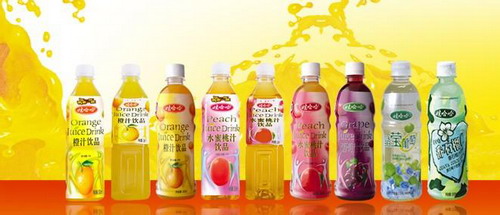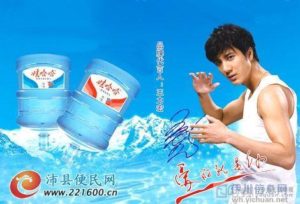Wahaha Group : The rising thirst of China
To know more about the beverage market, contact us at dx@daxueconsulting.com
Wahaha Group is Catching Up With The Trend
Founded in 1987, Wahaha is now the biggest food and beverage enterprise in China, ranking the fifth in the world. Its annual sales volume reaches 55 billion RMB. The success of it comes from its marketing strategy by promoting in early years its products and from its efficient distribution system. Are these strategies still successful and effective today?
A Success Story
Innovation is a key word for Wahaha Group. After introducing a variety of foreign advanced facilities and techniques, Wahaha also established more than 60 manufacturing factories and own approximately 150 subsidiary companies to guarantee its competitive advantages and to improve the quality and quantity of its products. Wahaha has set up 58 bases in 29 provinces and cities in China. However, Wahaha has never been the leading power of innovation because its strategies rely on a combination of imitation and innovation. Imitation is the prerequisite for innovation, the core of which is innovation as well. Therefore, what Wahaha pursues is to surpass the competitors in the process of innovative imitation.

The Distribution system
Wahaha has also established a unique distribution system based on interest. Such interest relationship attracts firms, like supplier, to cooperate with Wahaha since they share a common interest. In the meantime, that kind of relationship depends on controlling the different pricing strategies in different firms. Another characteristic of the relationship is that Wahaha distributes its products to different distributors to reduce the high cost of administration. Wahaha now has thousands of distributors all over the nation, creating a huge and effective system. Besides, Wahaha also conducts the policy of payment before delivery in order to avoid eventual cash flow problems.
Advertisement
 Effective advertising contributes to shaping Wahaha’s brand image. The advertising strategy of Wahaha is seen as effective with mass communication but a less innovative approach. Health and happiness are the core message of the brand’s images of the group. When Wahaha released its bottled of pure water in 1996, it has promoted its products through popular songs and attractive celebrities. Jing Gangshan, Mao-Ning, and Wang Leehom were the spokespeople for the group, who were the representation of youth and vitality at that time. Even the lyric of the songs was easy to remember and sing.
Effective advertising contributes to shaping Wahaha’s brand image. The advertising strategy of Wahaha is seen as effective with mass communication but a less innovative approach. Health and happiness are the core message of the brand’s images of the group. When Wahaha released its bottled of pure water in 1996, it has promoted its products through popular songs and attractive celebrities. Jing Gangshan, Mao-Ning, and Wang Leehom were the spokespeople for the group, who were the representation of youth and vitality at that time. Even the lyric of the songs was easy to remember and sing.
Wahaha couldn’t succeed without the board of directors. In a large sense, Wahaha reflects ZongQinghou’s personalities. As a responsible leader, ZongQinghou, founder, chairman and CEO of the group is innovative and risk taking. In a chaotic and unstable market, Wahaha’s enterprise culture is an impressive feature. ZongQinghou wants to create a home-like company for its employees, forming a cohesive atmosphere to encourage and motivate about 30,000 employees in the field.
Wahaha Group’s Current Situation
The current setback has discouraged Wahaha from reaching its goal sales. The sale volume goal for 2014 was expected at 102.3 billion RMB, but Wahaha only reached 72.8 billion RMB. The reasons could have been the downturn of the whole market economy. But the core reason is Wahaha’s internal issue, such as its out-of-date distribution system and laggard innovation ability.
The core innovation system in Wahaha group is unsteady. Even though the original goal of innovation of Wahaha is to imitate other brand’s product and add their own input to develop the product. Indeed, the drinks released in recent years are either only direct imitation or products with unclear strategy. Moreover, some other products only reflect the imitation of other companies’ product, such as the Nongfu Spring bottle of water and the Kirin’s beverages. Zong Qinghou believes that the main reason is that in recent years, the researchers of Wahaha are restricted in their laboratory and cannot keep up with the trend in order to meet the Chinese consumers’ needs.
Following the Market trend
Wahaha will focus on the healthcare food and products in first-tier or second-tier cities in mainland China. Besides the external factors such as higher sales cost and changing consumption idea, Wahaha still believes the key is to keep innovating on an existing product. With an aging population, the group will focus on healthier ingredients and develop its biological research center to create new products combining probiotic ingredients and traditional Chinese diet. As a result, Wahaha is releasing three main products, a bottle of water with higher-quality packaging, yogurt aiming at children’s consumption and mild beverage with fruits flavor. Besides, Wahaha will also shift its focus from smaller cities to first-tier or second-tier cities.
Wahaha will develop automation in its factories to increase the production rate. Zong Qinghou realized that industrial robot would be one solution for higher labor cost and limited human resources. In 2013, Wahaha finished the construction of the information-based system, which covered the production plan, the material supply, the sales and the distribution. It has improved the work efficiency and has decreased the labor cost, realizing a labor productivity of 2.5 million RMB per capita. Besides, ZongQinghou is now negotiating with some European company about an acquisition, which masters the robot technology.
Realizing its defects and disadvantage, Wahaha comes up with some solutions to catch up with the trend and to meet the changing consumers’ needs. The automation and clearer targeted consumers may help Wahaha to get back to his previous leading position.
How Daxue Consulting has helped its client
A beverage producer from Canada has contacted Daxue to help them designing a product launch strategy in China. With considerable numbers of brands of carbonated and noncarbonated drinks, and in order to follow the trend of healthy and trendy lifestyle in China, the client wanted to propose a sports drink line with reduced sugar content. Daxue Consulting has assisted the brand to his China Market entry approach by starting with a feasibility study in China’s market.
To know more about the Chinese consumers follow us on Twitter
#Chinese consumers place value on high quality #beverage products. Get all the facts at https://t.co/JwlOTKuuzr pic.twitter.com/MMs80W5LXk
— Daxue Consulting (@DaxueConsulting) September 11, 2015















